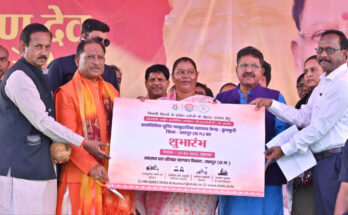Demand to allow surplus paddy purchased from farmers of Chhattisgarh to produce bio fuel directly to ethanol plants
With this, farmers can sell paddy directly to the ethanol plants set up in the state.
Chhattisgarh government’s 18-month efforts were successful
Chief Minister said: The permission to produce ethanol directly from surplus paddy will be helpful in the economic progress of the farmers of the state.
Raipur, 21 October 2020. Chief Minister Mr. Bhupesh Baghel has written a letter to Prime Minister Shri Narendra Modi, thanking the Chhattisgarh government for the decision to set the rate of ethanol production from surplus rice to Rs. 54 paise 87 paise as a result of the efforts, along with the surplus paddy purchased from the farmers of Chhattisgarh. Has also demanded to allow bio-fuel production directly to the ethanol plants, which will enable the sale of paddy directly by farmers to the ethanol plants in the state.
The Chief Minister has written in a letter to the Prime Minister – In order to encourage production of biofuels in the direction of National Bio Policy 2018 and fulfillment of its goal by the Government of Chhattisgarh, for the permission of bio-ethanol production from surplus paddy produced in the state since last 18 months. Constant efforts were made.
According to the decision taken by you as a result of these efforts of the state government, the rate of ethanol production from surplus rice (obtained through FCI godowns) by oil distribution companies has been set at 54 rupees 87 paise per liter. Thank you very much for this decision.
The Chief Minister has written that the state government demands that the surplus paddy purchased from the farmers of the state should be allowed to produce bio fuel directly to the ethanol plants, so that the paddy sold to the ethanol plants in the state can be sold directly by the farmers. Will be able to Chief Minister Mr. Baghel has said that the permission to produce ethanol directly from surplus paddy will prove to be extremely helpful for the economic progress of the farmers of the state.




